Recreational cannabis is rapidly changing in the United States. As of November of 2020, 15 states and Washington, DC allow the recreational consumption of marijuana. What was once the pipe dream of casual consumers and devotees alike is becoming a reality faster than you can make a bad stoner joke, but every state is taking a different approach. Those differences in recreational marijuana laws can make knowing how, when, and where to light up difficult even when you make it to a safe state.
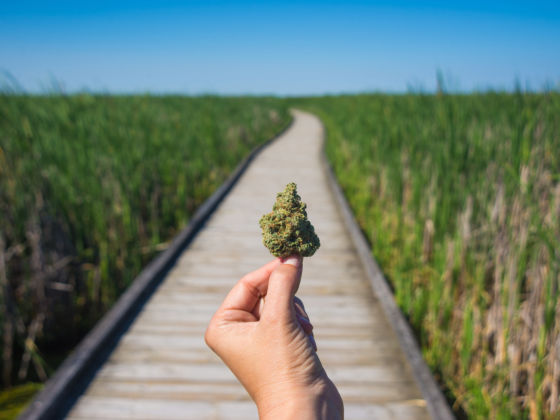
Everything to Know Before Going to a State With Recreational Marijuana
Alaska
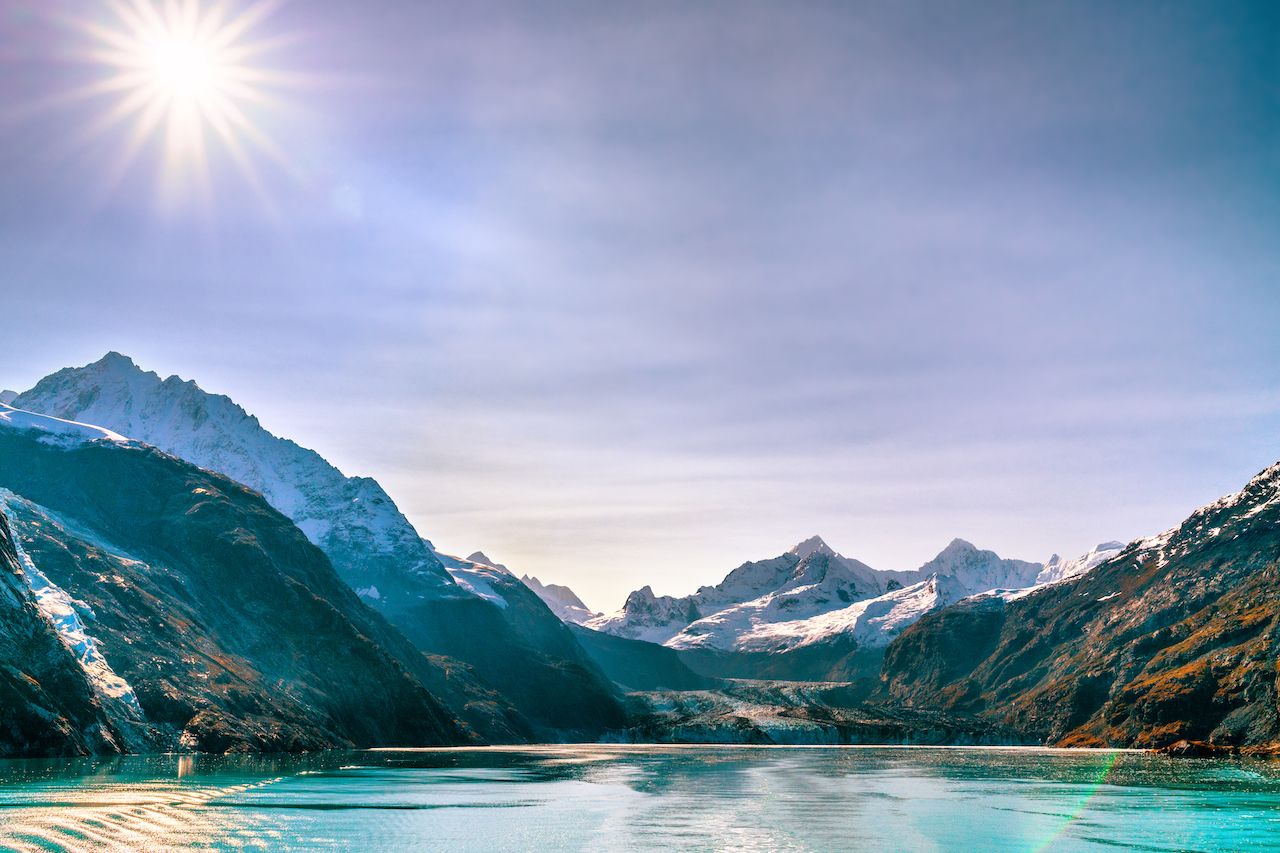
Photo: Maridav/Shutterstock
Alaska was the third state to legalize recreational cannabis when the bill passed in 2014, and it’s had a relatively friendly relationship with weed for decades. In 1975, the state courts ruled that Alaska’s constitution allows private residents to possess up to four ounces in their homes. That ruling has been strengthened by a ballot measure, but Alaska’s rough terrain has made it hard to really get things going in towns accessible only by boat or plane, like Juneau, the capital. Dispensaries are common in Anchorage, yet few and far between when it comes to rural and hard-to-get-to towns.
Laws to know: People 21 and older can possess up to one ounce of cannabis and six marijuana plants (three flowering, three not). Adults can also transfer up to one ounce of cannabis to another adult. Any type of cannabis use is prohibited in public places including, but not limited to, parks, roads, sidewalks, and businesses. Possession is illegal in federally regulated airspace and waterways (so don’t try and take a puddle jumper to Juneau while carrying cannabis).
Arizona
Arizona legalized recreational cannabis in 2020 with Proposition 207. The state’s 120 medical dispensaries will have the first option for recreational dispensary licenses issued by the state, according to AZ Central. Licenses will be reviewed through early 2021, and it’s expected that the first recreational dispensaries will be up and running in March.
Proposition 207 also importantly allows people who were convicted for certain low level cannabis crimes to have their record expunged. There are 26 social equity licenses for recreational dispensaries run by “individuals from communities disproportionately impacted by the enforcement of previous marijuana laws.”
Laws to know: The law allows people 21 and older to have up to an ounce of cannabis on them, or up to five grams of concentrate. Adults can also grow up to six plants at home. Edibles for recreational use are limited to a maximum of 10 milligrams of THC per serving, and a maximum of 100 milligrams per container.
California
California was the first state to legalize medical marijuana in 1996, and one of the first to legalize recreational marijuana in 2016. When recreational cannabis sales finally started in California on the first day of 2018, it became the most populous state with legal marijuana dispensaries. It hasn’t exactly been a rush to get things going, however. Physical shops are still primarily located in big cities, but there are a number of delivery services for recreational marijuana if making the trek to a brick and mortar isn’t an option.
Laws to know: People 21 and older can buy up to one ounce of cannabis per day, or eight grams of cannabis in concentrates and edibles. Adults can also have up to six plants. It’s illegal for dispensaries to sell between 10:00 PM and 6:00 AM. It’s illegal to consume cannabis in any public areas, within 1,000 feet of a school or child daycare, and in any location where tobacco is prohibited. It’s also illegal to have cannabis in a car unless it’s in a child-proof container.
Colorado
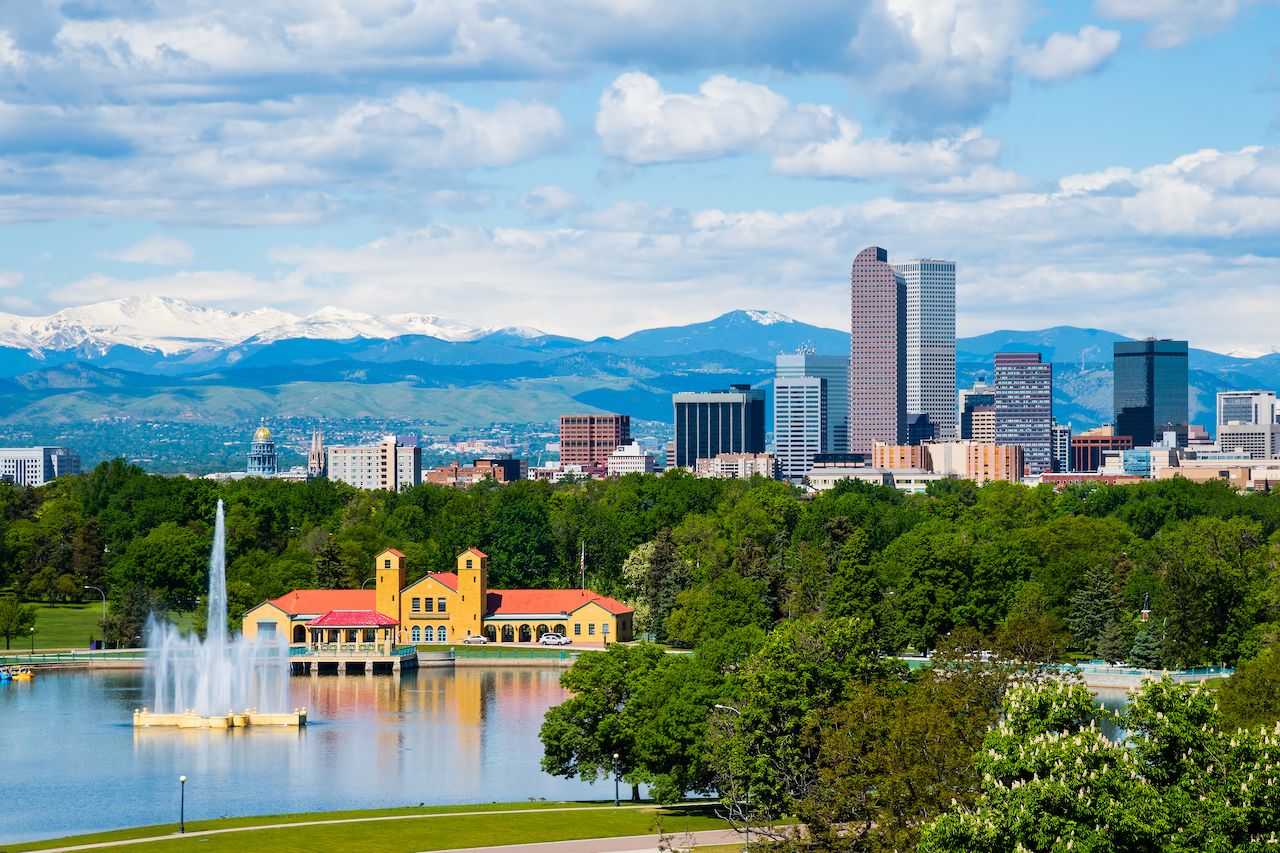
Photo: Andrew Zarivny/Shutterstock
Colorado is in a league of its own when it comes to recreational cannabis. It was the first state, along with Washington, to legalize recreational weed in 2012. Colorado was a couple steps ahead then, and it still is today. There are now more recreational marijuana shops in Colorado than there are McDonald’s and Starbucks in the state combined.
Laws to know: People 21 and older are allowed to possess one ounce of cannabis, which applies to both edibles and flower. You can grow up to six plants at home as long as only three plants are flowering at one time. You can’t legally consume cannabis openly or publicly, whether that be parks, transportation spots, or amusement venues.
Illinois
On January 1, 2020, Illinois became the 11th state to legalize recreational cannabis. According to the Department of Financial and Professional Regulation, 37 dispensaries opened on the first day and made more than $3 million in sales, and almost $11 million over the first weekend (though it should be noted the immediate interest created something of a shortage). All providers must keep a sufficient supply to provide uninterrupted priority access to medical patients. Along with legalization, the state added new criminal justice reform measures regarding past cannabis convictions “to address the impact of economic disinvestment, violence, and the historical overuse of the criminal justice system.”
Laws to know: Illinois residents 21 and over can purchase a maximum of 30 grams of flower, 500 milligrams of THC in edibles, and 5 grams of concentrate. Certain counties and cities don’t allow cannabis sales. In Chicago, sales are allowed but restricted to certain neighborhoods. When you’re at a dispensary, you’re not allowed to touch or smell the cannabis. Whatever you purchase must be in its sealed container if it’s in your car, and it’s illegal to consume cannabis on any public property.
Maine
Maine has some of the laxest laws on possession limits of legal cannabis in the US. The vote to legalize happened in 2016, and in February 2018, recreational dispensaries started opening. For Maine residents, the rules are even more open.
Laws to know: People 21 and older can possess up to two and a half ounces of marijuana, but no more than five grams can be from concentrate. You’re also allowed to have six flowering marijuana plants, 12 non-flowering plants, and an unlimited number of seedlings as long as it’s not grown in an area visible to the public. It’s illegal to consume cannabis in public or in vehicles.
Massachusetts
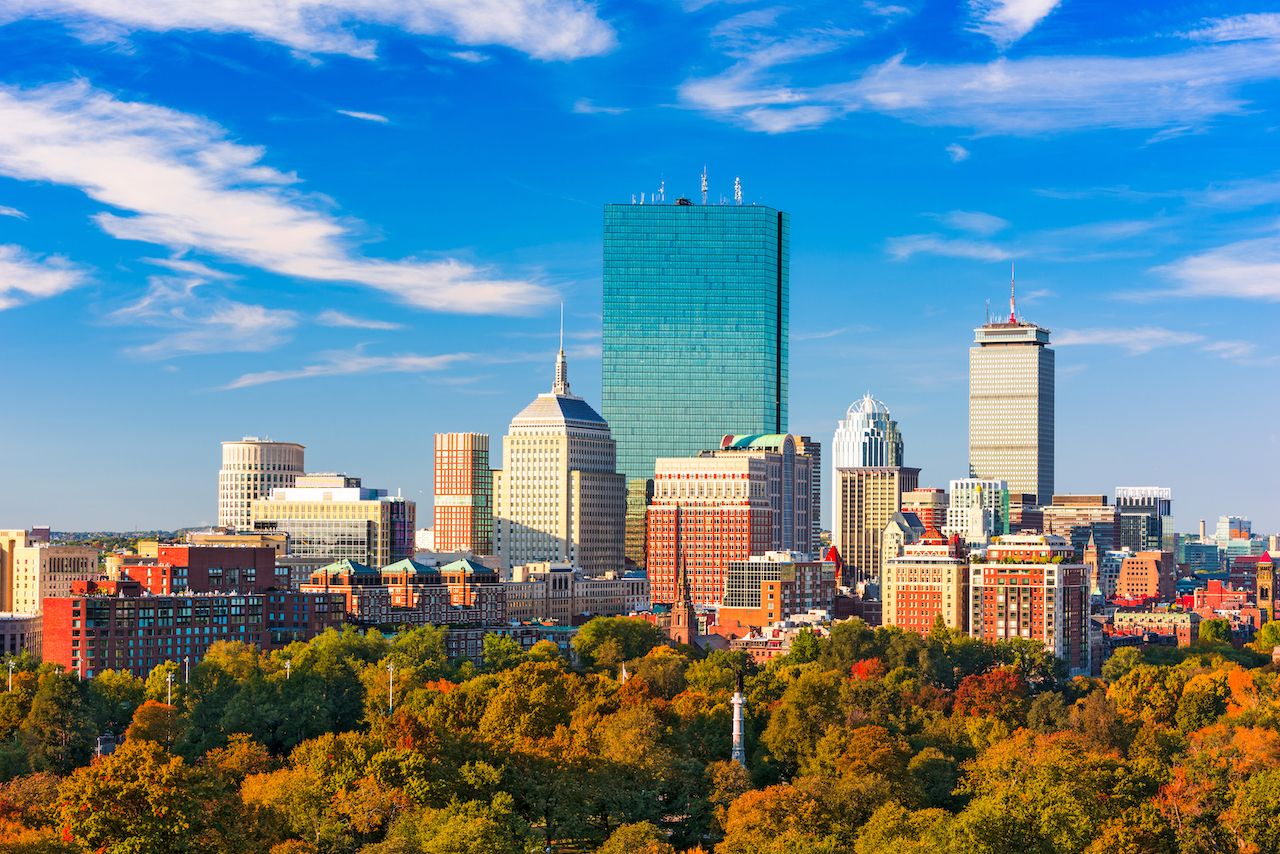
Photo: Sean Pavone/Shutterstock
Massachusetts legalized recreational cannabis in 2016, and the first stores are opening in late 2018. The number is expected to grow over the next couple years as more licenses are given.
Laws to know: People 21 and older can have up to one ounce on them and up to 10 ounces in their home. Also allowed is having six plants per adult. It’s illegal to consume cannabis in public or in vehicles, and it must be stored in a closed container while driving.
Michigan
Michigan legalized cannabis in the 2018 election, and legality laws went into effect on December 6, 2018. Marijuana won’t be commercially available until around 2020.
Laws to know: People 21 and over are allowed to possess up to two and a half ounces of marijuana or 15 grams of cannabis concentrate and 12 plants for personal consumption. There’s a 10 ounce limit for marijuana at home. It’s illegal to consume marijuana in public spaces.
Montana
Montana residents voted to legalize recreational cannabis in 2020. The two initiatives, CI-118 and I-190, legalize the sale and use of cannabis with a 20 percent tax on cannabis products. The law will mostly go into effect on October 1, 2021, according to the Bozeman Daily Chronicle. A portion of the tax revenue is earmarked for environmental conservation programs, as well as veteran services, drug treatment, and health care.
Immediately after Montana residents voted recreational marijuana laws, opposition groups filed lawsuits to stop the measure from moving forward, adding some uncertainty to the timing of legal sales.
Laws to know: People over the age of 21 can possess an ounce or less of cannabis flower, and 8 grams or less of concentrate.
Nevada
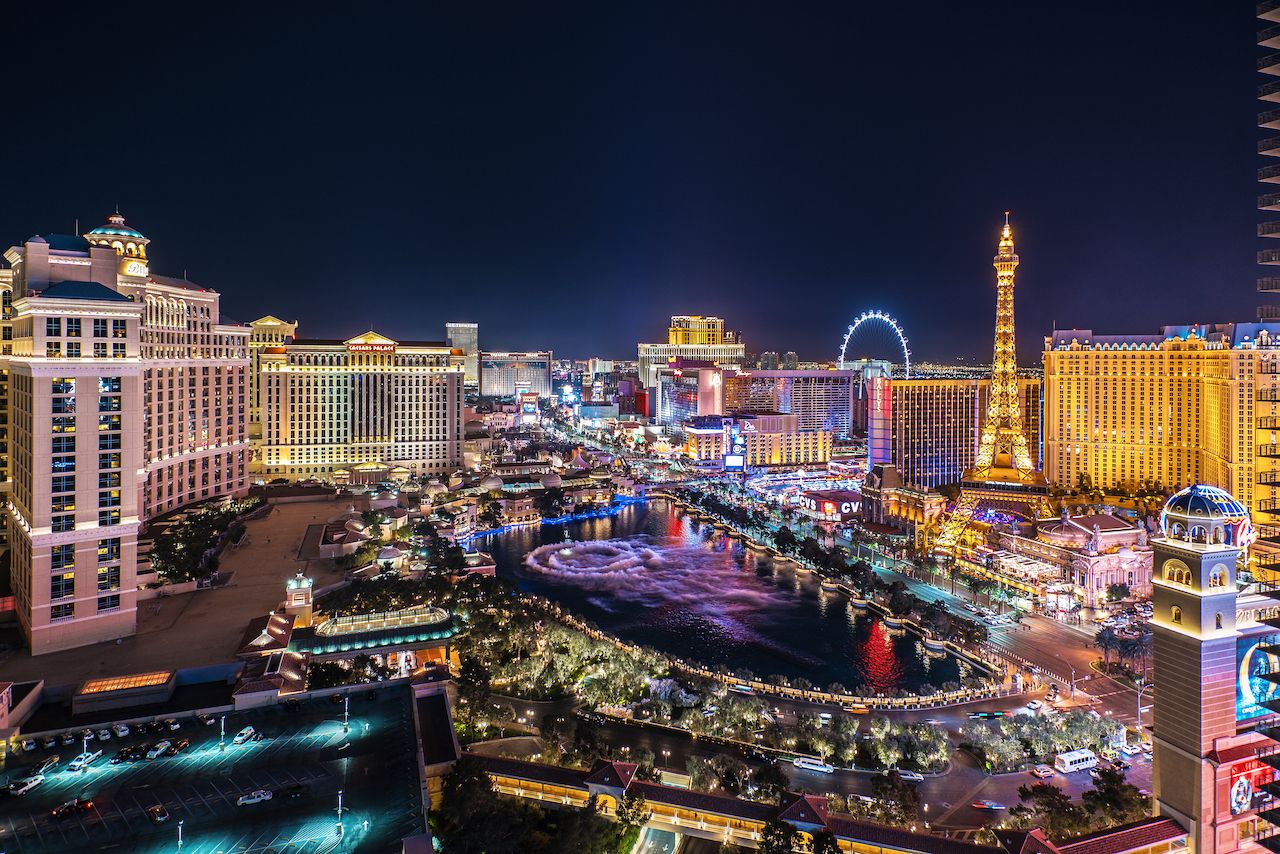
Photo: randy andy/Shutterstock
Nevada is known for welcoming vices that are taboo elsewhere, and in 2017, it added cannabis to that list. But it’s not as easy to consume marijuana as it is to throw down some money on a hand of blackjack.
Laws to know: People 21 and older can possess up to one ounce of cannabis and up to an eighth of an ounce of concentrated marijuana in the form of hash or edibles. Adults can also grow six plants at home. You can’t consume marijuana in public places, including casinos, or in moving vehicles.
New Jersey
New Jersey voted to legalize recreational cannabis in 2020 with an amendment that starts on the first day of 2021. Governor Phil Murphy created the Cannabis Regulatory Commission soon after the vote, however the exact amounts people will be allowed to possess, as well as the process for licensing dispensaries, is yet to be determined.
Oregon
Sales of recreational marijuana officially started in Oregon on July 1st, 2015, after a vote legalized cannabis in 2014. The state was well prepared as it already grew a large amount of medical marijuana both indoors and outdoors. Now, growers are facing an oversupply, which has pushed the cost of marijuana in the state to extreme lows like $4 a gram.
Laws to know: People over 21 are allowed to have up to one ounce of smokable cannabis on them when outside of their home, and eight ounces inside their home. When it comes to edibles and other products derived from cannabis, adults are allowed 16 ounces in solid form and 72 ounces in liquid form. Additionally, people can have up to four marijuana plants per household. It’s illegal to smoke in a public place, which includes, but is not limited to, bar patios, parks, hallways, and outdoor areas of hotels.
South Dakota
South Dakota legalized recreational and medical cannabis at the same time in 2020, despite opposition from the state’s Republican governor, Kristi Noem. South Dakota residents voted to legalize possession of one ounce or less of cannabis for people over 21, and permits individuals to grow no more than three cannabis plants. Taxes of 15 percent will go to public schools and the state’s general fund. The initiative starts on July 1, and a system for licensing sales will be enacted by April 2022, so it’ll be a few years before residents have access.
Vermont
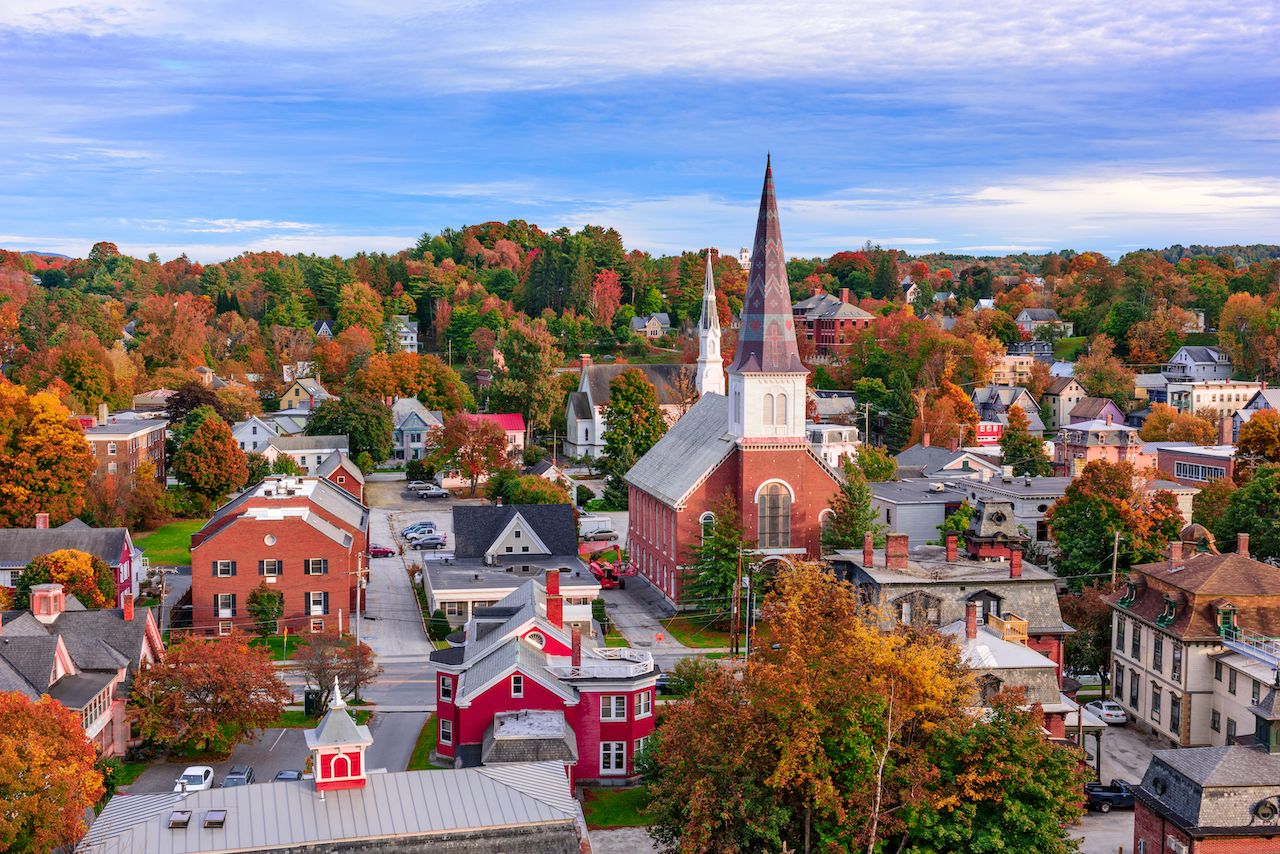
Photo: Sean Pavone/Shutterstock
In July of 2018, Vermont became the first state to legalize recreational cannabis through the state’s legislative body rather than putting the onus for change directly on voters in a ballot initiative. However, the law doesn’t allow for businesses to sell recreational marijuana, so you still need to know somebody to get your hands on some.
Laws to know: It’s legal for people 21 and older to possess up to one ounce of marijuana and to own two mature and four immature plants. You’re not allowed to smoke in a car, on Lake Champlain (it’s federal waters), or in any public place. Selling marijuana is still illegal.
Washington
Washington joined Colorado as the first two states to legalize recreational cannabis, and it’s proven to be a popular decision. More than $1.3 billion in cannabis and cannabis products were sold in Washington state alone in 2017. While it’s easier to acquire cannabis the more west you go, there are dispensaries in the majority of regions in the state.
Laws to know: People over 21 can purchase up to one ounce of smokable cannabis, 16 ounces of edibles in solid form, 72 ounces in liquid form, and seven grams of concentrates. It’s illegal to consume cannabis in the view of the public, which essentially restricts smoking to private residences.
Washington, DC
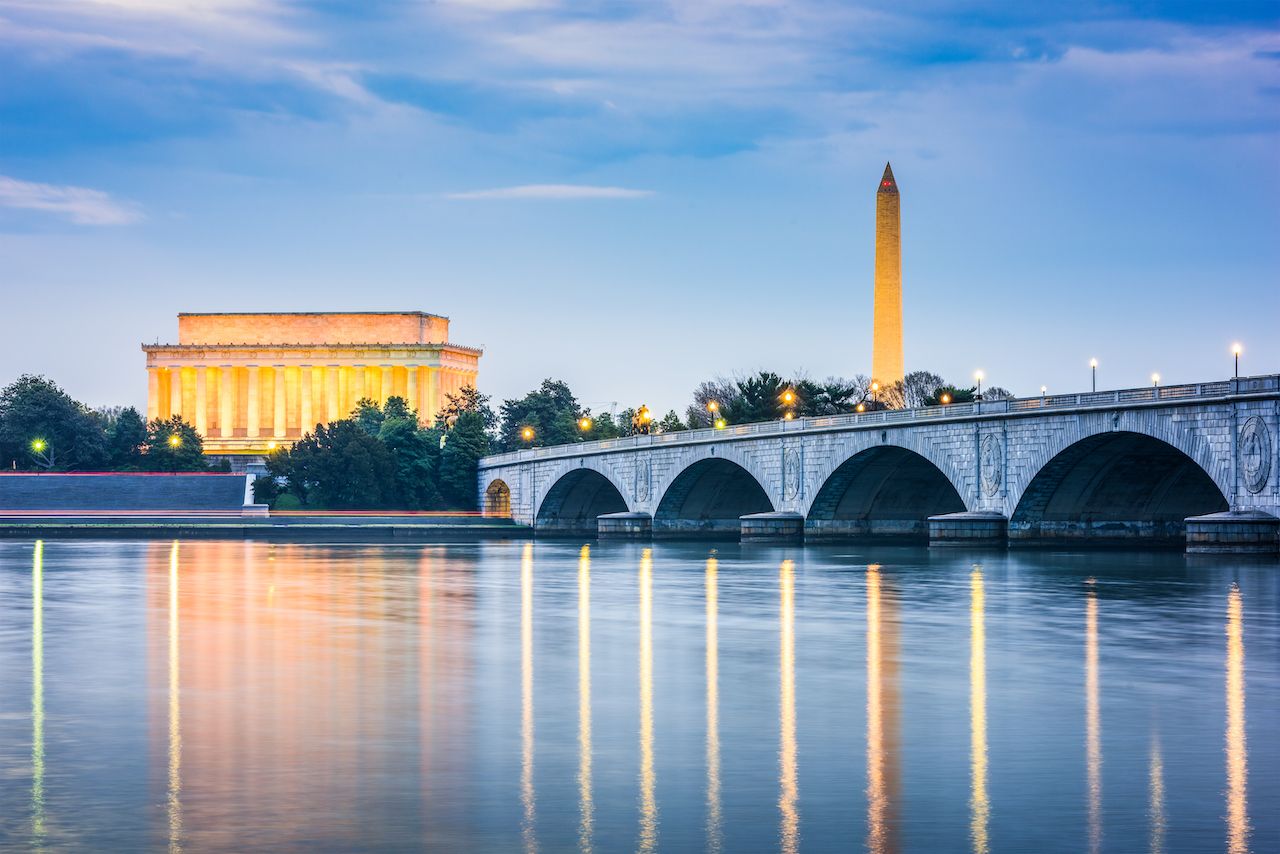
Photo: Sean Pavone/Shutterstock
The federal government isn’t all that fond of cannabis, but that didn’t stop the nation’s capital from enacting pro-marijuana legislation in 2014. Unlike most of the states with recreational marijuana laws, however, DC has tight restrictions on acquiring weed.
Laws to know: People 21 and over can possess up to two ounces of marijuana and gift one ounce or less to another person 21 or over. “Gift” is the key word, because it’s still illegal for anyone — shop or person — to sell cannabis in DC. It’s illegal to consume cannabis in public places, and that goes for city-owned and federally owned land. Nearly 30 percent of DC is federal land, and you can be prosecuted on a federal level if caught consuming marijuana on it.
A version of this article about recreational marijuana laws was previously published on July 1, 2019, and was updated on November 9, 2020, with more information.